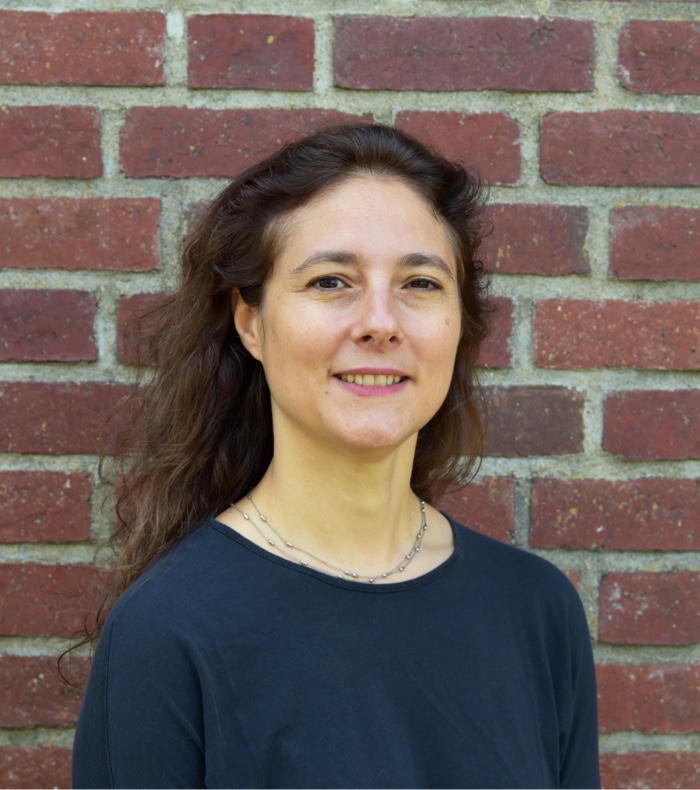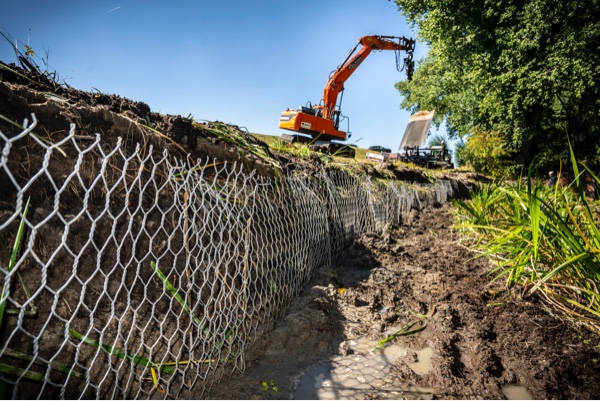More knowledge on PFAS in water
PROMISCES is a Horizon 2020 European project dedicated to providing solutions for the EU zero pollution ambitions and to understanding pollutants that persist in the environment. In this project, Deltares is studying the sampling, their fate and transport in our environment.
More knowledge on PFAS in water
PROMISCES is a Horizon 2020 European project dedicated to providing solutions for the EU zero pollution ambitions and to understanding pollutants that persist in the environment. In this project, Deltares is studying the sampling, their fate and transport in our environment.
Julie Lions (BRGM), the project coordinator, explains, "There are about 21 industrial sectors involved in the production or utilization of PFAS." Consumers can come into contact with PFAS in their daily lives through various products like anti-stick pans, anti-grease papers, or cosmetics. PFAS can be released into wastewater, and treatment plants are often ill-equipped to filter them, leading to pollution of underground water resources. The project's focus is on understanding and eliminating industrial mobile, persistent, and potentially toxic chemicals (iPM(T)s) and PFAS in the soil-sediment-water system. It includes 7 case studies in various European locations, which allow to study the compounds in a wide range of environments.

Julie Lions
Julie Lions is an hydrologist at the BRGM (French Geological Survey). Up until 2017, she contributed to a large number of projects for the EU, private companies, and the national research agency (ANR). Since 2020, she joined BRGM to conduct scientific projects on groundwater quality. Since November 2021, she is the project Coordinator of H2020 PROMISCES 'Preventing Recalcitrant Organic Mobile Industrial Chemicals for Circular Economy in the soil-sediment-water System'.
Zero pollution
PFAS has recently gained attention, and the European Commission is due to update the REACH regulation to address hazardous chemicals by the end of 2023. Last February, PFAS restrictions proposal was introduced by the European Chemicals Agency due to their persistence and harmful effects on health and the environment. Julie Lions confirms that PFAS can even be found in remote rainwaters. Healthcare costs in Europe linked directly to PFAS exposure are estimated to be €52-84 billion every year, according to recent studies.
PROMISCES - Preventing Recalcitrant Organic Mobile Industrial chemicalS for Circular Economy in the Soil-sediment-water system
Case studies
PROMISCES aims to support policy-makers through a decision-making framework (DSF) integrating existing knowledge and data from case studies. “One of the main output of the project will be a DSF, a decision-making framework, which will integrate the knowledge and information currently available, from pre-existing scientific literature and the results and the data collected during our case studies. This DSF shall help managers to get a better understanding of the compounds, how to treat them …” highlights Julie Lions.
The project faces a challenge with over 12,000 compounds, including nearly 5,000 PFAS that have been registered or produced, but only 150 have monitoring and remediation techniques. Around 60 compounds are addressed in PROMISCES. Julie Lions emphasizes the development of new analytical tools and methodologies to provide data and predictive models based on chemical structures. Collaboration with 27 partners from 9 countries is crucial for identifying solutions and increasing knowledge about these compounds’ behaviour and properties.
Circular Systems
Considering increasing water consumption and climate change, industrial water reuse and circular business models are essential. Better understanding PFAS and iPM(T)s in circular systems can improve human health protection and resource recovery.
Diversity, the main challenge and the main opportunity
Julie Lions emphasizes that different water uses require varying approaches for remediation, but addressing iPM(T)s is crucial for all. The project's diversity of partners and case studies provides a rich overview.
PROMISCES aims to develop new efficient and sustainable technologies to remove PFAS. Julie Lions mentions pyrolysis and ultrasonic cavitation as among the techniques being considered.
As leader of the Work package dedicated to transport, Deltares is currently developing in collaboration a model train to simulate the PFAS transportation and create a toolbox. In addition, artificial intelligence and machine learning are leveraged by PROMISCES for the improvement of innovative modelling which can assess human health and environmental risks on different time and spatial scales.
“With PROMISCES, we are trying to develop new technologies and methodologies, aside of combustion, to remove PFAS. Such methodologies should be efficient, sustainable and scalable. But due to the wide diversity of compounds, it is very challenging to identify a ‘one-size-fits-all’ or even a one-size-fits-most’ methodology”.
Deltares collaborates with BRGM and Berliner Wasser Betriebe (BWB) on new monitoring methods using passive samplers as technique to capture PFAS in urban rivers. The monitoring focuses on stormwater sewers in an industrial and commercial area with potential PFAS emissions.

